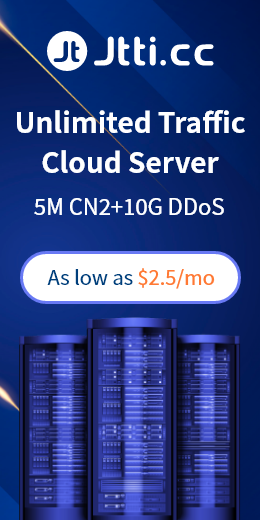Cloud servers and physical servers each have their own unique advantages and disadvantages, suitable for different needs and use cases. This article will explore the advantages of cloud servers and physical servers to help you better understand their characteristics and make wise choices based on your needs.
The advantage of the cloud server
1.1 Flexibility and Extraction
Cloud Server:
Dynamic telescopic: Cloud server allows easy expansion or reducing resources according to actual needs. This means that you can allocate and release computing resources based on changes in traffic and workloads to ensure that you only pay the resources you use.
Multi -tenant environment: Cloud server usually runs in multiple tenant environments. Multiple users can share the same physical hardware and use resources without interfering with other users. This sharing model enables hardware resources to make full use of and reduce costs.
1.2 usability and fault tolerance
Cloud Server:
Data redundancy: Cloud service providers usually provide data redundancy and backup services to ensure that the data will not be lost. If a server fails, the data can be recovered from the backup, which improves availability and fault tolerance.

Multiple data centers: Cloud service providers usually distribute multiple data centers worldwide to enable data to store and access at multiple locations. This reduces the risk of single -point failure.
1.3 Management and automation
Cloud Server:
Automation Management: Cloud service providers usually provide automated management tools, such as automatic backup, automatic expansion and load balancing. These tools simplify server management tasks and reduce the burden on maintenance.
API and scripts: Cloud services usually provide API and script functions, allowing developers to automate and customize resource management and allocation.
1.4 cost benefits
Cloud Server:
Billing on demand: Cloud servers are usually provided on demand. Users only need to pay for the resource used in actual use, and do not need to purchase or rent the entire physical server. This model can reduce initial costs.
Avoid unnecessary hardware investment: Cloud server eliminates the need to buy, deploy and maintain physical server, thereby reducing the cost of hardware and equipment management.
The advantages of physical server
2.1 Independence and performance
Physical server:
Independence: Physical server is an independent server instance that does not share hardware resources with other servers. This means that users have exclusive control of the entire server and can be customized according to their own needs.
High performance: Because physical servers do not share hardware resources, they usually provide higher performance. This is essential for applications that require a large number of computing or storage dense tasks.
2.2 Security and compliance
Physical server:
Security: The independence of physical servers has also enhanced security, because users can fully control the server's access and security settings. This is very important for applications with high requirements for sensitive data or compliance.
Compliance: Some industries or regulations require data storage and processing on physical servers to ensure the physical security and compliance of data.
2.3 Customization and hardware control
Physical server:
Customization: Users can select the server's hardware components as needed, such as the CPU model, memory capacity, storage type and network interface. This custom ability is very useful for meeting the needs of specific applications.
Hardware control: Users can completely control the allocation and configuration of hardware resources on the server to meet their performance needs.
2.4 Forecast performance
Physical server:
Stable performance: Because physical servers are not affected by other tenants, users can predict and manage performance more easily. This is very important for applications that require stability.
Consider factors when choosing a cloud server or physical server
Selecting cloud server or physical server should be based on your specific needs and project nature. The following are some considerations, which can help you make wise choices:
3.1 Budget
Cloud server: If your budget is limited and does not want to bear a large number of initial hardware costs, then the cloud server may be a more economical choice because they are usually billing on demand.
Physical server: If you have capital expenditure budgets and require long -term use of hardware resources, the physical server may be more suitable.
3.2 Performance requirements
Cloud server: If your application needs flexible resource expansion and high availability, the cloud server provides dynamic telescopic and fault tolerance.
Physical server: If you need high performance, stability, and hardware control, the physical server may be more suitable.
3.3 Security requirements
Cloud Server: Cloud service providers usually provide security measures, but if you need more advanced security and compliance control, physical server may be more suitable.
Physical server: Physical server provides more security and isolation, and is suitable for processing applications with high requirements for sensitive data or compliance requirements.
3.4 Management and maintenance
Cloud server: Cloud server usually provides automated management tools, which simplifies server management tasks.
Physical server: Physical server requires more management and maintenance, so you need to consider whether your team has related skills.
3.5 Project nature
Cloud Server: If you need temporary resources in development, testing or short -term projects, the cloud server may be more suitable.
Physical server: If you have long -term stable work load requirements, the physical server may be more suitable.
Cloud servers and physical servers have their own advantages and applicable scenarios. Choosing which one is better depends on your needs, budgets, performance needs, safety needs and project properties. The cloud server provides the advantages of flexibility, telescopeness and billing on demand, and is suitable for various applications and projects. Physical servers provide independent, high -performance and customized advantages, and are suitable for applications that require stable performance and high security. Before making a choice, carefully evaluate your needs and consider the above factors to ensure that selecting the most suitable server hosting solution.

 EN
EN
 CN
CN









